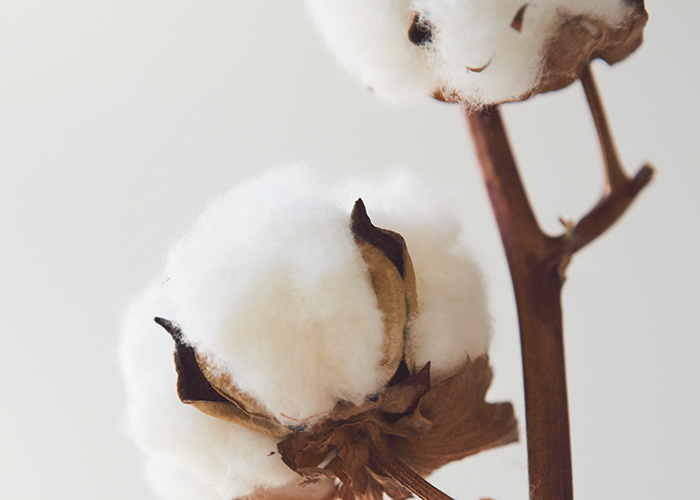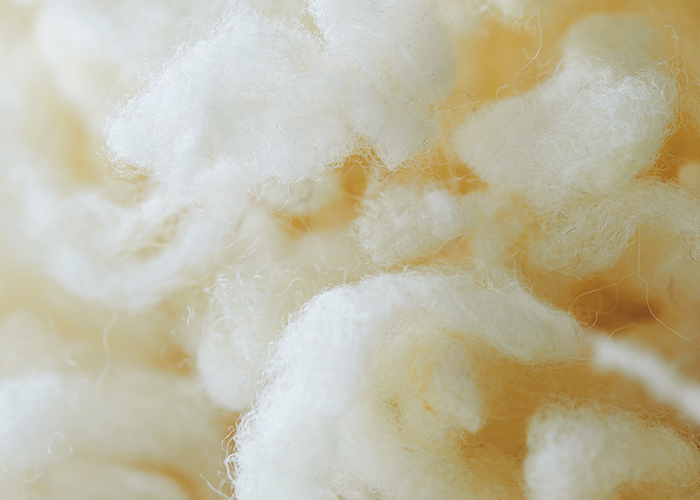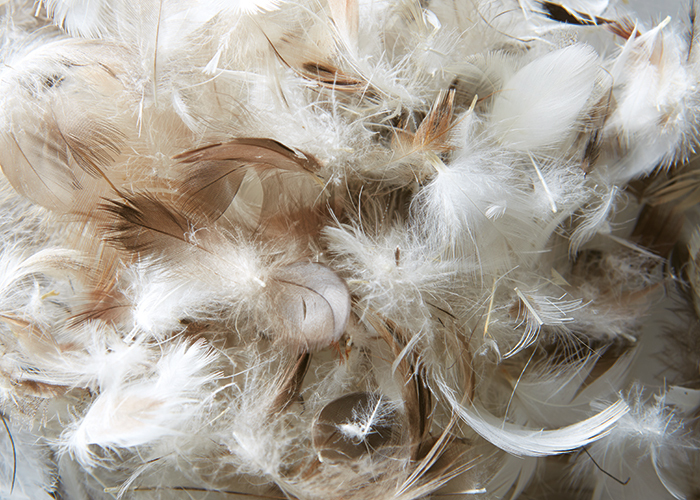*Until 28th February. Excludes large polypropylene storage items & furniture.
Product & Packaging
MUJI was founded to provide people with timeless everyday products over throwaway trends
It's how we inspire a simpler, beautiful way of living where less is more.
But global consumption will outrun the planet's limited natural resources. MUJI is going beyond our design philosophy to create with care for the planet and future.
We're making our products and packaging more sustainable by selecting materials responsibly, reducing, reusing, and recycling materials and our waste to protect the Earth's resources and pave the way for a more sustainable, circular industry – and future.
We aim to achieve a circular economy by eliminating waste and promoting recycling and reuse of materials
We believe in a world where materials are reused and recycled. Where items pass from one owner to the next. Waste is avoided. And resources are conserved. This is a circular future – one that benefits our planet and people for years to come. We're making circularity a part of how we think and design, looking beyond each item's purpose today to what happens after it is loved tomorrow. We're working to close the loop, together.
Using recycled materials
Giving new life to materials is at the heart of creating with circularity in mind. We reweave cut-offs and leftovers from our production processes into new recycled cotton or wool products. We also use goods that would normally be rejected for being the wrong shape or size to make new products. That's how we are doing our part to reduce waste and promote the recycling of resources.
ReMUJI: collecting, reusing and recycling pre-loved clothes
What if our clothes and belongings could have many lives?
We're reimagining the future of products through our ReMUJI initiative. We collect customers' pre-loved textiles – like clothes, towels and sheets – at several of our stores in Europe and Japan to resell or recycle. The collected garments are either washed, overdyed and turned into new products available as ReMUJI at certain stores, or recycled to use materials in our recycled fibres.
Championing reuse and recycling
Through a number of initiatives, we're championing care, repair, reuse and recycling with our customers to give new life to products and go full circle on materials.
- We're offering upcycling and mending workshops and services (MUJI flagship shop Copenhagen, Denmark).
- We installed complimentary water refill stations in MUJI stores.
- We're working with leading recycling company First Mile to collect waste from our stores, giving us better transparency and traceability in our waste management(MUJI stores, UK).
- We're collecting and recycling MUJI bottles made from PET to reduce plastic waste.
- We're selling products that wouldn't usually be sold due to slight scratches or stains in our “Mottainai Market” shop area (Select MUJI stores, Japan).
Making our packaging more sustainable
At MUJI, we have always kept things simple when it comes to our packaging – featuring just a package or tag with product details. Keeping our packaging to a minimum, to keep waste to a minimum.
We continuously review the materials we use for shopping bags, product packaging, and sales floor displays to recycle resources and reduce waste.
Now, we are eliminating plastic packaging where possible and transitioning to alternative materials such as recycled paper for our packaging and displays. We've also switched from plastic to paper shopping bags in all stores.
- FSC paper, including recycled paper, for tag pins instead of plastic.
- Recycled paper for our socks and scarfs display hooks instead of plastic.
- Paper shopping bags in all stores and encouraging customers to bring their own bags.
- 100% degradable bamboo fiber straws at Café&Meal MUJI restaurants.
Selecting materials responsibly
The materials we use play an important part in our environmental footprint. That's why we give considerable attention to their selection and aim to source raw materials with less environmental impact.
As part of our commitment to responsible sourcing, we aim to use materials that can be traced back as much as possible. We visit production sites ourselves, and also use third-party auditors to check work is done with respect for the land and lives of producers.
Following in the steps of our ancestors, MUJI aims to cultivate and collect our natural materials such as cotton, linen, and wool with respect for nature, biodiversity, animals, plants and producers. We also use recycled cotton and wool to require fewer virgin resources and plan to reduce the use of petroleum-derived plastic.

Cotton
Organic cotton has a lower impact on the environment than conventionally grown cotton. It is grown by natural processes without any chemical pesticides and fertilizers or genetically modified organisms (GMOs). This improves soil health, water quality and biodiversity.
At MUJI, we're consistently making efforts to be more environmentally friendly, looking at the long-term picture and considering all the ways we can improve our practice. As part of this, our range includes organic cotton - that's cotton grown naturally without the use of chemical pesticides and fertilisers for at least three years.

Wool
MUJI sticks to the gentle breeding method that treats sheep in a natural manner and uses only non-mulesed wool (except for reclaimed wool).
100% of MUJI wool is non-mulesed.

Feathers
We only use feathers that have been procured in a manner that meets the Five Freedoms of Animal Welfare defined by the Farm Animal Welfare Council and have been reviewed and certified as being such. This means we use do not use feathers from animals that have been force fed or had their feathers taken while still alive.




